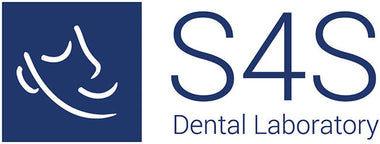WHY DO MY TEETH HURT WHEN I WAKE UP?
Waking up with tooth pain can be an unpleasant start to your day, leaving you wondering what might be causing it.
If your teeth regularly hurt when you wake up, it’s important to understand the potential reasons behind the discomfort.
Tooth pain in the morning can stem from a variety of causes, some of which are easy to address, while others may require more professional attention.
In this article, we’ll explore the common reasons for waking up with tooth pain, how to identify the symptoms, and effective ways to address the problem.
Common causes of morning tooth pain
There are several factors that could be contributing to your morning tooth pain, and identifying the root cause is the first step toward finding a solution.
Here are some of the most common causes:
Bruxism (teeth grinding or clenching)
Bruxism often occurs during sleep, especially if you’re stressed or anxious. This habit can wear down tooth enamel, cause jaw pain, and lead to sensitivity. If you wake up with sore teeth, it might be due to the pressure placed on your teeth overnight.
TMJ disorders (Temporomandibular joint disorder)
TMJ disorders affect the jaw joint and surrounding muscles, causing pain that can radiate to your teeth, especially in the morning. You may also experience clicking or popping when opening your mouth or chewing.
Tooth decay or gum disease
Cavities, untreated tooth decay, or gum disease can cause persistent tooth pain that is often more noticeable when you wake up. If you notice sensitivity to hot or cold food and drink, this could be a sign of an underlying dental issue.
Sinus pressure
The sinuses are located just above the upper teeth, and if they become congested, it can create pressure that feels like tooth pain. This is often accompanied by sinus headaches or nasal congestion.
Poor sleep posture
Sleeping with your head in an awkward position can strain your jaw and mouth muscles, leading to discomfort in your teeth and jaw.

The importance of managing tooth pain
Ignoring morning tooth pain can lead to worsening conditions, such as further enamel erosion, worsening cavities, or even more serious TMJ issues.
Addressing the cause of the pain early on can prevent additional problems and ensure that your teeth remain healthy in the long run.
Regular dental check-ups are vital for identifying any underlying issues and receiving early treatment to manage pain effectively.
How to stop teeth hurting when you wake up
If you’re waking up with tooth pain, there are several strategies you can implement to reduce or prevent the discomfort. The best course of action is to visit your dentist to establish the root cause of the pain.
Once the cause is identified, your dentist can recommend the most effective treatment.
In the meantime, here are a few practical steps you can take:
Maintain good oral hygiene
Good oral hygiene is essential for preventing tooth pain caused by tooth decay and gum disease. Brush your teeth twice daily with fluoride toothpaste and floss regularly to remove plaque and food particles. Regular dental check-ups will help catch any underlying issues before they worsen, ensuring that your teeth stay healthy and pain-free.
Practice stress management
Since stress can contribute to bruxism, incorporating stress-relieving activities into your routine can help reduce the likelihood of grinding your teeth at night. Techniques such as deep breathing exercises, meditation, and regular physical activity can help lower stress levels, promoting better sleep and reducing the risk of tooth pain caused by bruxism.
Use a mouthguard (occlusal splint)
If teeth grinding is the cause of your morning discomfort, wearing a mouthguard at night can make a world of difference. A dentist can provide you with a bespoke mouthguard designed to protect your teeth from excessive pressure and help minimise the damage caused by bruxism. This can reduce pain and help protect your enamel from wear and tear.
Could bruxism be the cause of your tooth pain?
Unfortunately, many people with bruxism remain undiagnosed due to a general lack of awareness about the symptoms that can result from clenching and grinding.
Common signs and effects of bruxism include:
- Headaches and migraines
- Facial myalgia (aching jaw and face muscles)
- Tinnitus and sinus pains
- Poor sleep quality
- Tooth wear and mobility
- Broken fillings
- Receding or inflamed gums
- Tongue scalloping
- Clicking or popping jaw joint
- Tooth loss or cracked teeth
How can the SCi (Sleep Clench Inhibitor) help with tooth pain?
If you suspect that bruxism might be the cause of your morning tooth pain, the SCi (Sleep Clench Inhibitor) could be an effective solution.
The SCi is a custom-made device that helps reduce the pressure caused by clenching or grinding your teeth during sleep.
By reducing the impact of clenching, the SCi can help alleviate the pain and discomfort you feel in the morning, providing you with a more restful night’s sleep and a pain-free start to your day.

Take action today: Find your nearest SCi dentist
If you’re struggling with tooth pain caused by bruxism, it’s time to take action.
Find your nearest SCi provider and start protecting your teeth while you sleep.
Don't wait for the pain to worsen, take control of your dental health today and enjoy more peaceful, pain-free mornings.
